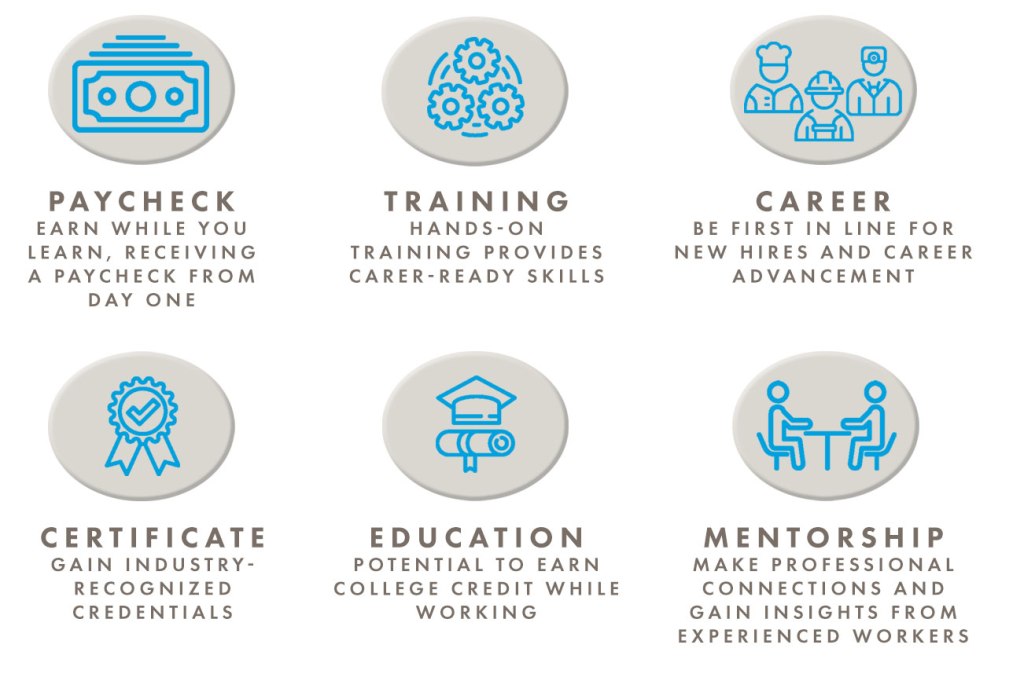Apprenticeships have long been a successful method of vocational training and education in many countries around the world. While they may vary in structure and approach, the core concept remains the same: combining on-the-job training with classroom instruction to provide individuals with the skills and knowledge needed for a specific profession. In recent years, apprenticeships have gained renewed attention as an alternative pathway to traditional education, offering valuable hands-on experience and industry-specific training.
In this article, we will explore ten international perspectives on apprenticeships, highlighting how different countries approach this form of education and showcasing the benefits it can offer to individuals, industries, and societies as a whole.
1. **Germany:** Known for its robust dual system of vocational education and training (VET), Germany is often seen as a model for successful apprenticeship programs. In Germany, over half of young people opt for an apprenticeship after completing mandatory schooling. The country’s VET system combines practical on-the-job training with theoretical classroom learning, leading to high levels of skill development among participants. Apprenticeships in Germany are highly regarded by both employers and employees alike, offering a clear pathway to employment in various industries.
2. **Switzerland:** Similar to Germany, Switzerland also has a well-established apprenticeship system that is deeply integrated into its workforce development strategy. Swiss apprenticeships typically last two to four years and cover a wide range of professions across sectors such as healthcare, engineering, finance, and hospitality. The Swiss government works closely with industry partners to ensure that apprentices receive quality training that aligns with market demands.
3. **United Kingdom:** In the UK, apprenticeships have undergone significant reforms in recent years aimed at increasing their quality and relevance. The introduction of the Apprenticeship Levy has encouraged more employers to invest in apprenticeship programs by requiring larger companies to contribute financially towards them. This has led to an expansion of available apprenticeship opportunities across diverse industries such as technology, construction, healthcare, and business management.
4. **Australia:** Australia boasts a strong tradition of apprenticeships through its formalized system known as Australian Apprenticeships. These programs combine structured training with paid work experience across various fields including trades like plumbing and carpentry as well as emerging industries like information technology (IT) and renewable energy. Australian Apprenticeships are regulated by government bodies to ensure consistency in quality standards nationwide.
5. **Japan:** In Japan, traditional craftsmanship is highly valued within society leading to a culture that places great importance on artisanal skills passed down through generations via structured apprentice-master relationships known as “uchideshi.” These formal mentorship arrangements involve intense hands-on learning under the guidance of experienced practitioners across disciplines like woodworking (sashimono), pottery (yakimono), tea ceremony (chanoyu), martial arts (budo), among others.
6 .**Netherlands:** The Netherlands has embraced the concept of lifelong learning through its apprentice-friendly policies that cater not only to young entrants but also adult learners seeking career changes or upskilling opportunities later in life.Through partnerships between educational institutions,career advisors,and employers,the Dutch government promotes continuous professional development via flexible pathways such as modular certifications,specialized workshops,and blended learning modelsadaptedto individual needs rather than age brackets.
7 .**Canada**: Canada offers diverse options for those pursuingapprenticeshipswith each provinceandterritoryhavingits ownregulatoryframeworkfor skilledtrades.TheRedSealProgram,a nationallyrecognizedstandardfor interprovincialtrade certification,enablesqualifiedapprenticesto practice their tradeacross multiple jurisdictionsenhancingmobilityandjob prospects.RedSealcertificationisavailableinover50designatedskilledtradesincludingelectrician,welder,millwright,andcarpenteramongothersreflectingthe country’scommitmenttosupportinga skilledworkforcewithportablequalifications.
8 .**Singapore**: Singapore prioritizesthe integrationof academiclearningwithpracticalskillstrainingthroughitsWork-StudyDegreeProgrammes(WSDP)offeredatlocaluniversitiesandpolytechnics.WSDPcombineson-the-jobtrainingwithclassroominstructionallowingstudentsto earnawagewhilepursuingtheir degrees.Thisinitiativeaimstocultivatea future-readyworkforceequippedwith bothacademicknowledgeandspecificindustryexpertisepositioningsingaporeasa hubforeducationalexcellenceandinnovationacrossvarioussectorsfromengineeringtohealthcare.
9 .**South Korea**: South Koreahasadopteda proactiveapproachtowardsdevelopinghighlyspecializedtalentsthroughitsthree-tieredapprenticeshipsystemcomprisingjuniorvocationaltraining,juniorengineeringcolleges,andindustry-academic cooperationprogrammes.Theseinitiativesfosterseamlesspathwaysforeducationaladvancementandexperientiallearningenablingstudents topursuecareerstrajectoriesinrapidlyevolvingfieldslikeadvancedmanufacturing,digitaltechnology,andgreenenergy bolsteringsouthkorea’scompetitivenessintheglobalmarketplacebynurturingskilledprofessionalscapableofinnovatinginscienceandtechnologydomains
10 .**Brazil**: Brazilhasembracedthenotionof’apprendizagemindustrial’or industrialapprenticehoodas awaytopromoteinclusiveeconomicgrowthandsocialmobilityespeciallyamongunderprivilegedyouth.Brazilianlegislationmandatescompaniesabovecertainstaffsizehirespecificpercentageoftheirworkforceasapprenticestoprovidehandsontrainingandanintegratedcurriculumcombiningtechnicalcourseswithinstitutionslikednationalservicecommercialization(Servicode nacional de aprendizagemindustrial-SENAI).Theseprogramsnotonlyequipyoungindividualswithjob-relevantskillsbutalsopreparethemforgainfulemploymentopportunitiesandalifelongcommitmenttoprofessionaldevelopment
In conclusion,internationalperspectivesonapprenticeshipevidencethatdivergentcultures,policies,andpracticescanallconvergetowardsacommonobjectiveofsustaininglivelihoodsthroughqualityeducationandmeaningfulemployment.Apprenticeshipsisnotjustaboutpassingdowntraditionalknowledge;itisalsoaboutadaptingtocurrenttrends,nurturinginnovation,fosteringcollaboration,bolsteringeconomicresilience,supportingsocialinclusion,andempoweringindividualstobuildbrighterfuturesforallgenerationsahead.Theglobalconversationaroundapprenticeshispschooldiscoversnewhorizonsopeningupboundlesspossibilitiesfordiverselearnersseekingtodeveloptheirsensesofpurpose,potential,…
Recommended Products
As an Amazon Associate, we earn from qualifying purchases.

Leave a comment